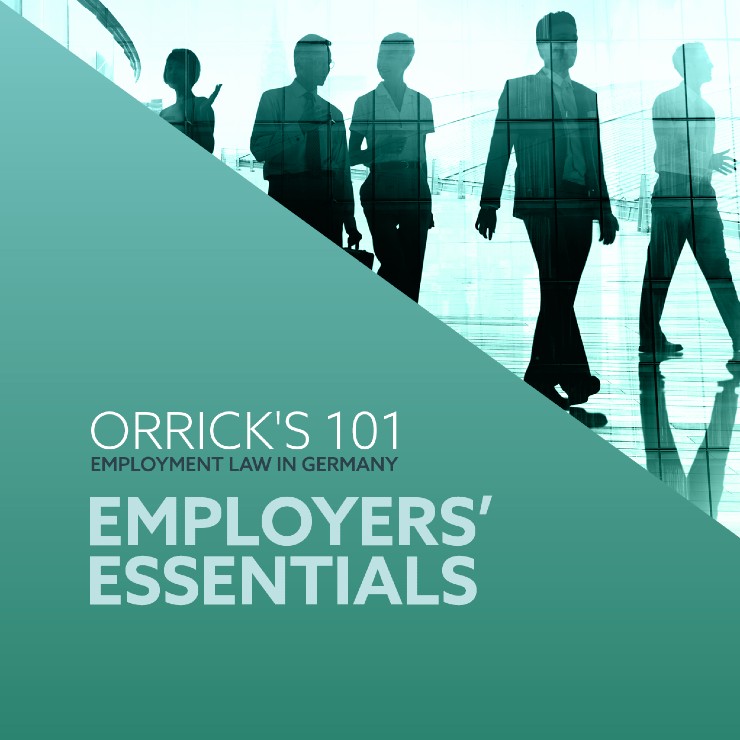
Employers’ Essentials (2022 Edition)
Gives an overview of 15 key principles of employment law in Germany, such as remuneration, paid time off, working time, holiday and sick pay, and maternity protection.
February.01.2022
Every player interested or already active in the German market needs to have a working knowledge of the key principles of German employment law which offers a good level of protection to employees.
This is especially true for U.S.-based multinationals not fully familiar with the concepts of co-determination and dismissal protection, both key elements of German employment law and widespread in the EU.
Our 101 on Employment Law in Germany gives a high level overview of key practical issues employers face and should be aware of in order to minimize exposure. While our Employer's Essentials sets out certain key principles all employers should be aware of, our Legal Q&A two pagers will have a closer look and answer the most common questions employers have on specific topics, such as using fixed-term contracts, termination of employment, employee representation, non-compete clauses or contractors.
If you have any questions, feel free to reach out to André Zimmermann, head of our German employment law practice, or your usual contact at Orrick.

Employers’ Essentials (2022 Edition)
Gives an overview of 15 key principles of employment law in Germany, such as remuneration, paid time off, working time, holiday and sick pay, and maternity protection.
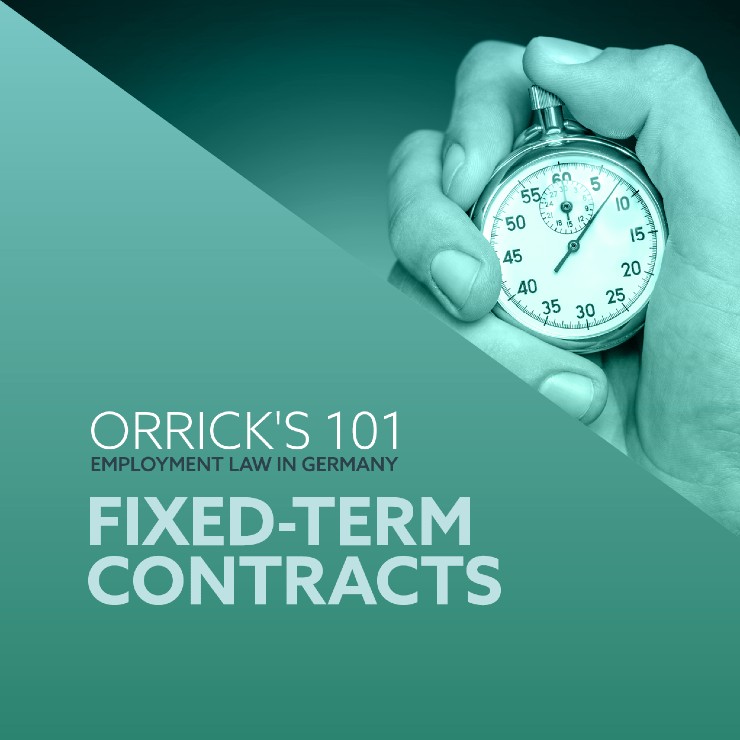
Legal Q&A | Fixed-Term Contracts
Given the rather strong dismissal protection in Germany, fixed-term contracts can be a viable option. This Legal Q&A two pager gives an overview of the basics companies need to take into account when considering this option.
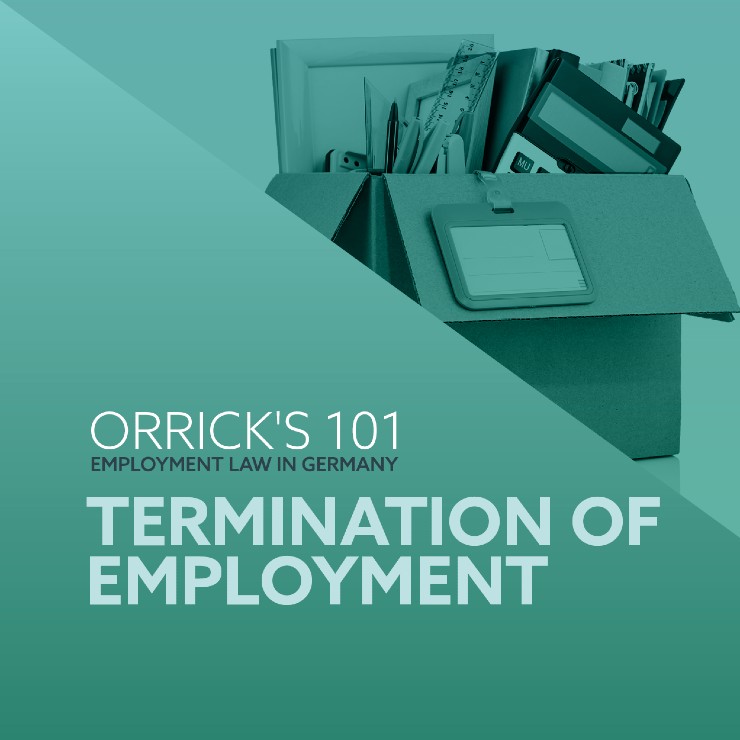
Legal Q&A | Termination of Employment
In Germany, employees enjoy rather strong protection against termination of employment. Additionally, there are some form requirements employers must observe. This Q&A two pager gives a basic overview of the termination process in Germany.
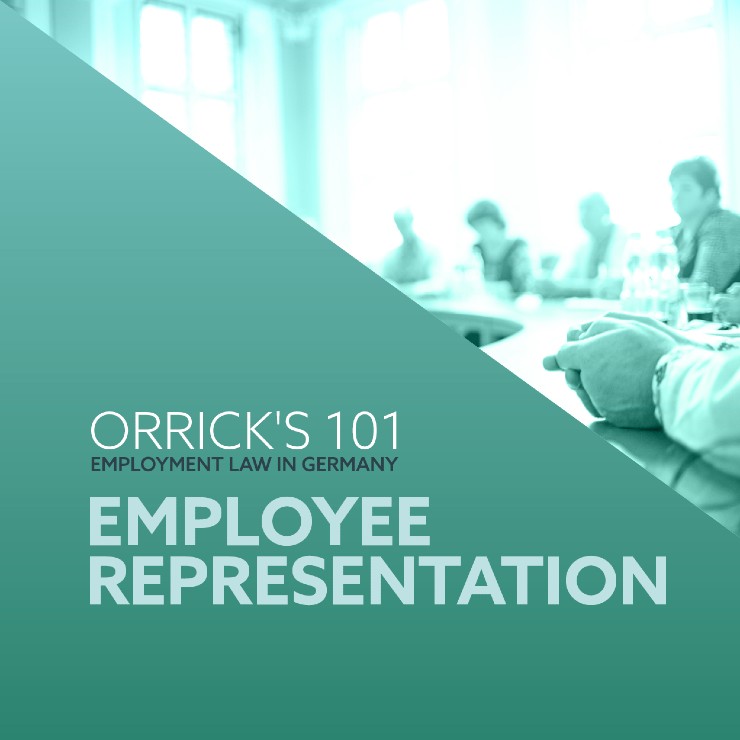
Legal Q&A | Employee Representation
German employment law provides for a sophisticated system of employee representation. This Q&A two pager gives an overview on how employee representation is handled in Germany.
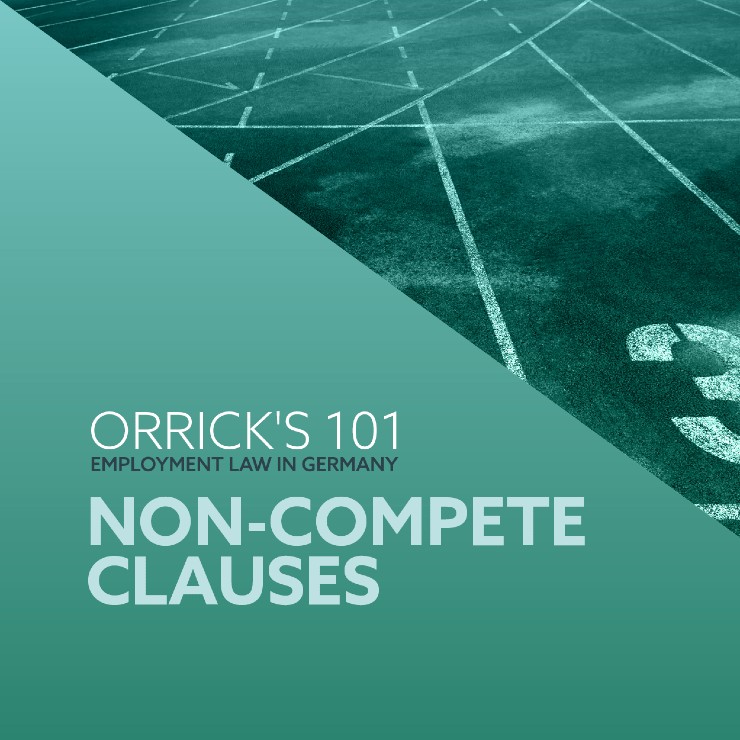
Legal Q&A | Non-Compete Clauses
Non-compete clauses can effectively protect the know-how of companies, especially in the tech sector. But their use has its pitfalls, so every employer should at least know the essentials which are covered in this Legal Q&A two pager.
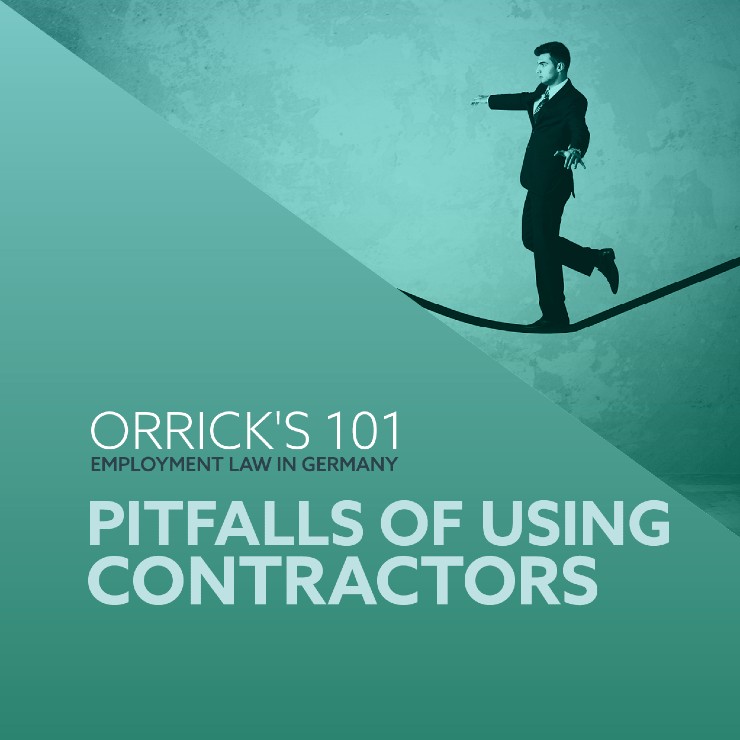
Legal Q&A | The Many Pitfalls of Using Contractors
Incorrectly classifying an employee as a contractor can have considerable effects on the company – from retroactive liability for taxes and social security contributions to reputation damage and even criminal liability of the company's managing directors in certain cases. It is therefore crucial to know the main criteria for determining them correctly, which are covered in this Legal Q&A two pager.
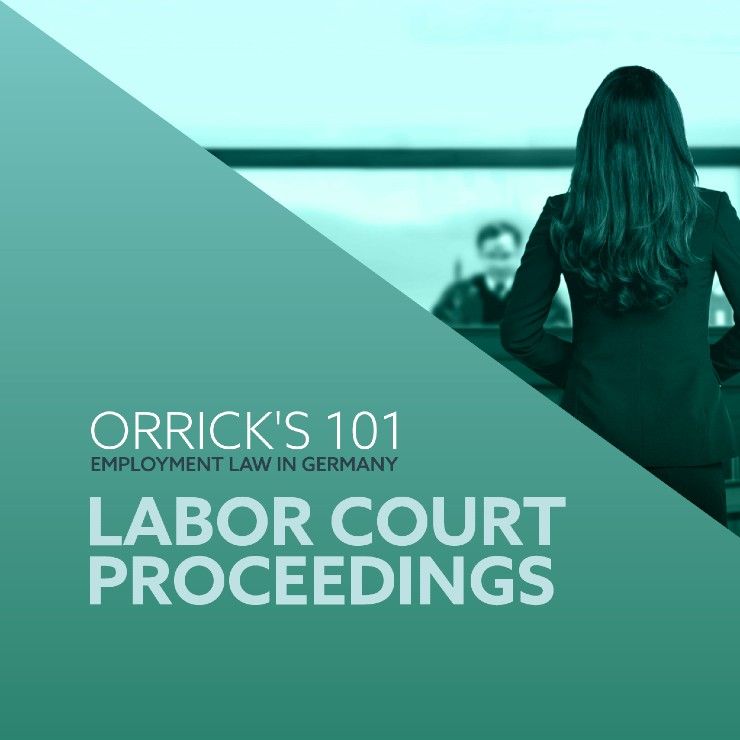
Legal Q&A | Labor Court Proceedings
Employees and employers often meet again in court, especially when it comes to the termination of their employment relationship. The German labor court procedure has several particularities that must be observed by the employer when having a legal dispute. This Q&A two pager gives an overview of what you need to know.
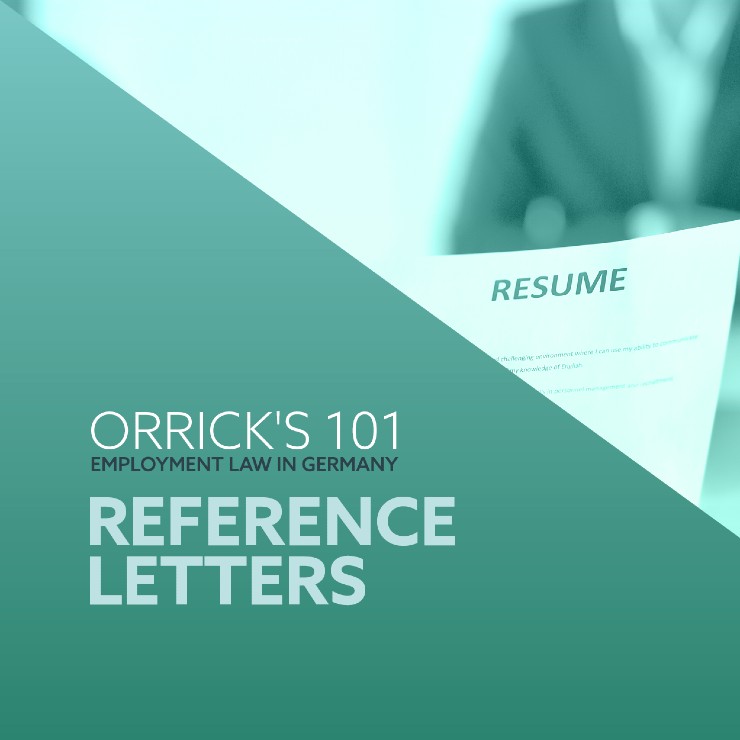
Employers in Germany should not underestimate the meaning of reference letters since there are clear guidelines as to when and how they must issue a reference letter. Every employee in Germany is entitled to a reference letter. But employers do not only need to know the specifics on how to write reference letters but- equally important - how to analyze reference letters of candidates in the hiring process.

Legal Q&A | Family Friendly Rights
Germany scores well on family friendliness in the workplace. Statutory maternity and parental leave rights provide for a rather complex structure of maternity leave (Mutterschutz), parental leave (Elternzeit), parental benefits (Elterngeld) and other rights. This Q&A two-page document gives an overview of the most important family friendly rights in Germany.

Agency work (Arbeitnehmerüberlassung) is a highly regulated business area in Germany. This legal Q&A provides a clear overview of how Agency Work is handled under German employment law, what alternatives exist and what needs to be considered especially regarding EoR, PEO, equal pay, collective bargaining agreements, maximum assignment period, strikes, co-determination and much more.

Legal Q&A | Diversity & Discrimination
This Legal Q&A provides a clear overview of the General Equal Treatment Act (Allgemeines Gleichbehandlungsgesetz – "AGG") that sets the legal framework to protect individuals against discrimination in the workplace.